Horsted Keynes: When JFK came to Sussex
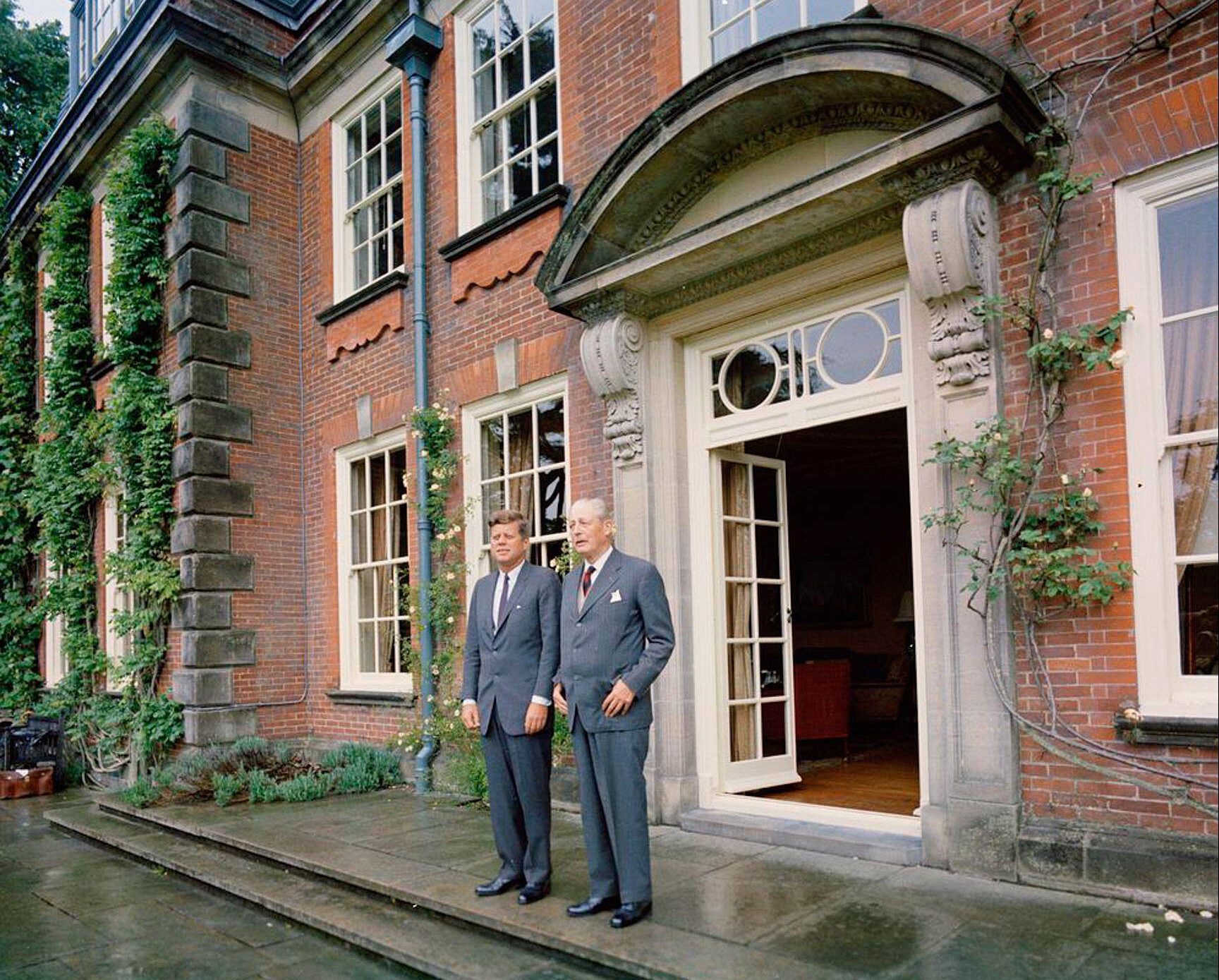
Today Horsted Keynes is one of the most serene and peaceful villages in Sussex, but, as Russell Higham discovers, Horsted Keynes was once at the centre of talks to ward off WWIII
Horsted Keynes is the epitome of a quiet Sussex village. Located on the outskirts of Ashdown Forest (home to Winnie-the-Pooh and his creator A. A. Milne), its quintessential English charm and calm tranquillity means it is often used as a filming location for period movies. The sleepy parish’s lovingly preserved 1920s railway station – on the picturesque Bluebell Railway steam train line — has featured in Downton Abbey, The Woman in Black and Mr. [Sherlock] Holmes.
Yet, just over 60 years ago, Horsted Keynes played host to a procession of world leaders, including the President of the United States, John F. Kennedy, who came to discuss top-secret affairs as the planet teetered on the verge of a third world war.
Birch Grove, a 10-bedroomed Queen Anne-style country house set in 800 acres just outside the village, was the family home of Harold Macmillan, who served as British Prime Minister from 1957 to 1963. In his penultimate year of tenure, the Cuban Missile Crisis had seen America and Russia bring the Cold War right to the very edge of full-scale nuclear conflict.
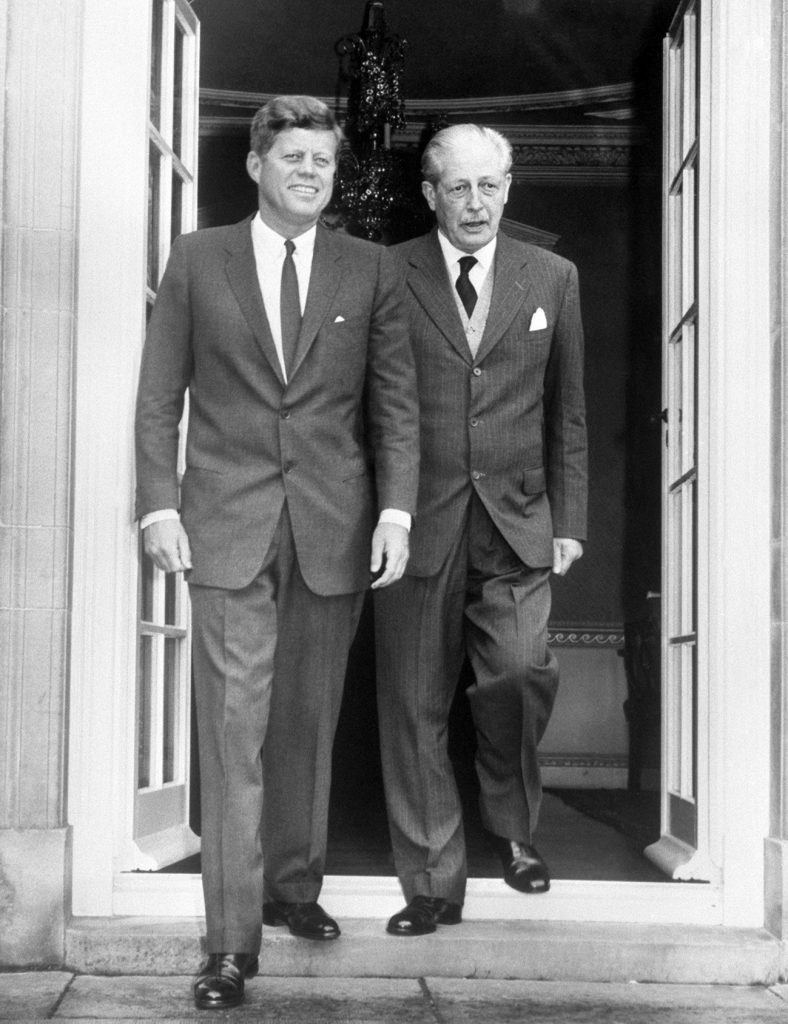
Following an eleventh-hour stand-down, and the subsequent narrow aversion of global catastrophe, Macmillan invited John F. Kennedy to the house for talks about de-escalating tensions between the two superpowers and their aligned states.
Arriving in June 1963 to cheering crowds who lined the main road from London down to Sussex, it was to be JFK’s only visit to Britain: he was assassinated in Dallas just five months later.
But his hosts and bystanders were not to know that. On the President’s arrival in Horsted Keynes, the entire village was shut down for 24 hours to ensure his complete security. The residents’ electricity was even switched off – presumably to prevent electronic eavesdropping – on the orders of US Secret Service men who took over the locals’ favourite pub, The Red Lion in nearby Chelwood Gate, as their temporary headquarters.
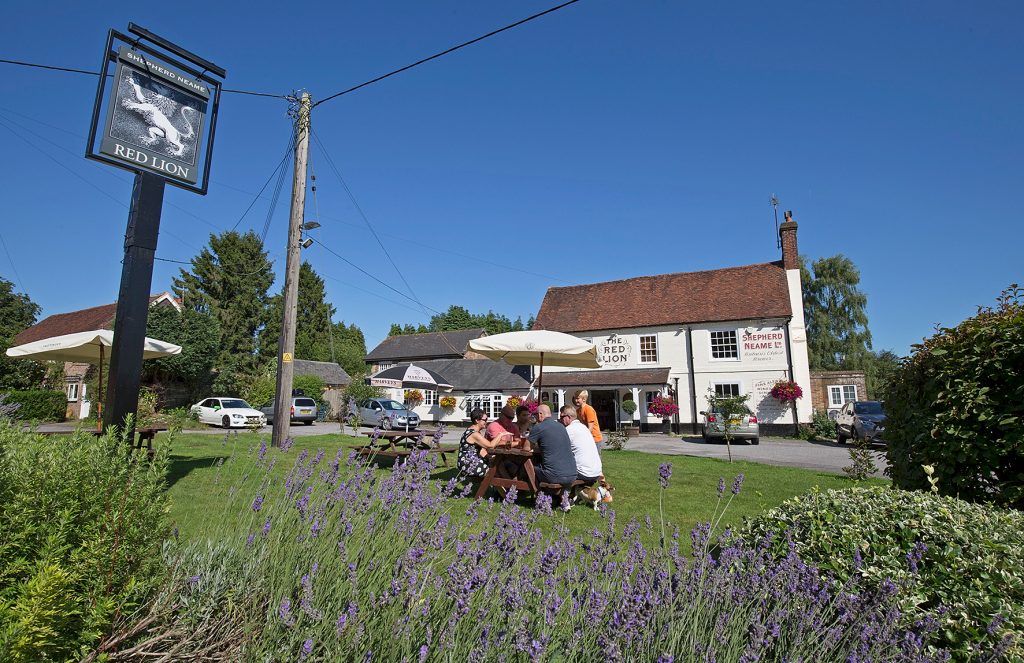
Despite the urgency of their agenda, JFK and Macmillan found time to stop at this charmingly traditional country pub — with its oak beams, heraldic shields, and open fireplace — when they called in for lunch and to sample some Sussex ales.
Now owned by Shepherd Neame, Britain’s oldest brewery, The Red Lion still celebrates the two world leaders’ historic visit by displaying newspaper cuttings on the walls. It’s even possible to follow in JFK’s footsteps by ordering one of his favourite meals, a beef burger, from the menu of traditional pub classics.
JFK was not the only world leader to enjoy Macmillan’s hospitality. Other notable visitors to Horsted Keynes included JFK’s rival superpower leader, Soviet Union General Secretary Nikita Khrushchev; French Prime Minister Charles de Gaulle; former US President Dwight D Eisenhower; and Jawaharlal Nehru, the first Prime Minister of India.
As well as helping to prevent a third world war, the village also played a part in the Second World War when it was an evacuation centre for 40 Czech refugee school children. They became famous for a day too when Queen Elizabeth decided to pay them a visit, which also made the national news.
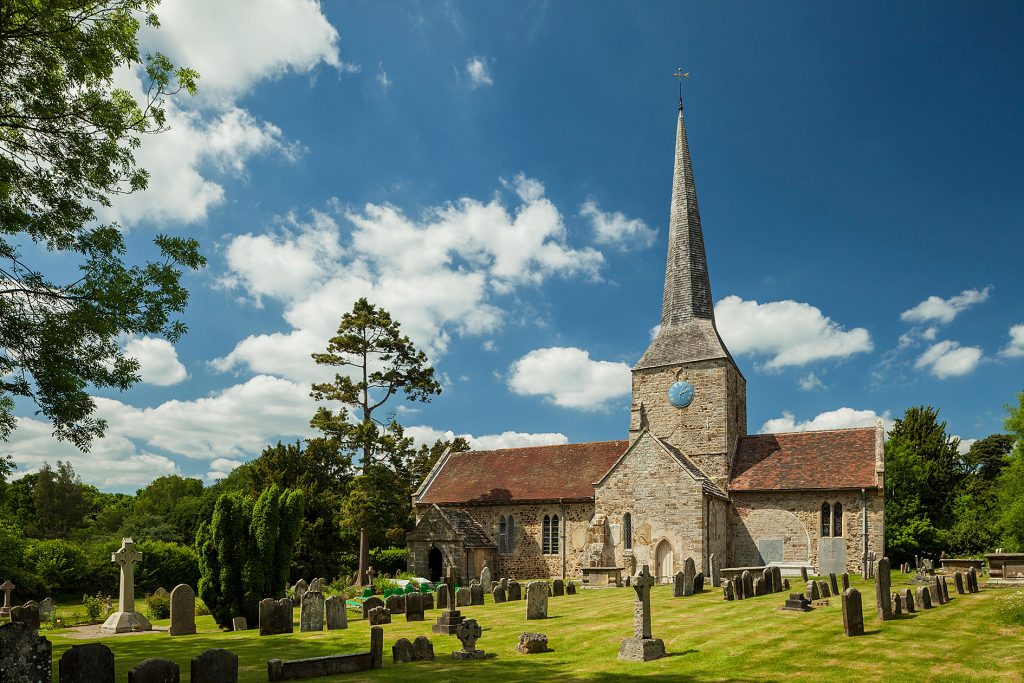
While the Cold War eventually simmered down, Horsted Keynes’ link to Armageddon did not end there. The Red Lion was also used in the 1980s BBC television adaptation of Douglas Adams’s The Hitchhiker’s Guide to the Galaxy. In the very first episode, the show’s two main protagonists, Arthur Dent and Ford Prefect, can be seen enjoying a ‘last pint on Earth’ at the pub’s bar, shortly before the planet is destroyed to make way for an intergalactic bypass.
In real life, Birch Grove survives and is now owned by James Hay, the racehorse owner/trainer and significant donor to the Conservative Party. Though the house is not open to the public, it is possible to stay down the road at Twyford Farm in Birch Grove hamlet. Part of a working farm that dates to 1630, it offers charming accommodation — including a luxury suite — overlooking idyllic meadows and a fishing lake, as well as a proper farmhouse breakfast each morning. Farmer Bob Felton will even show you the famous ‘JFK Oak’ tree that was planted on the day of the president’s visit.
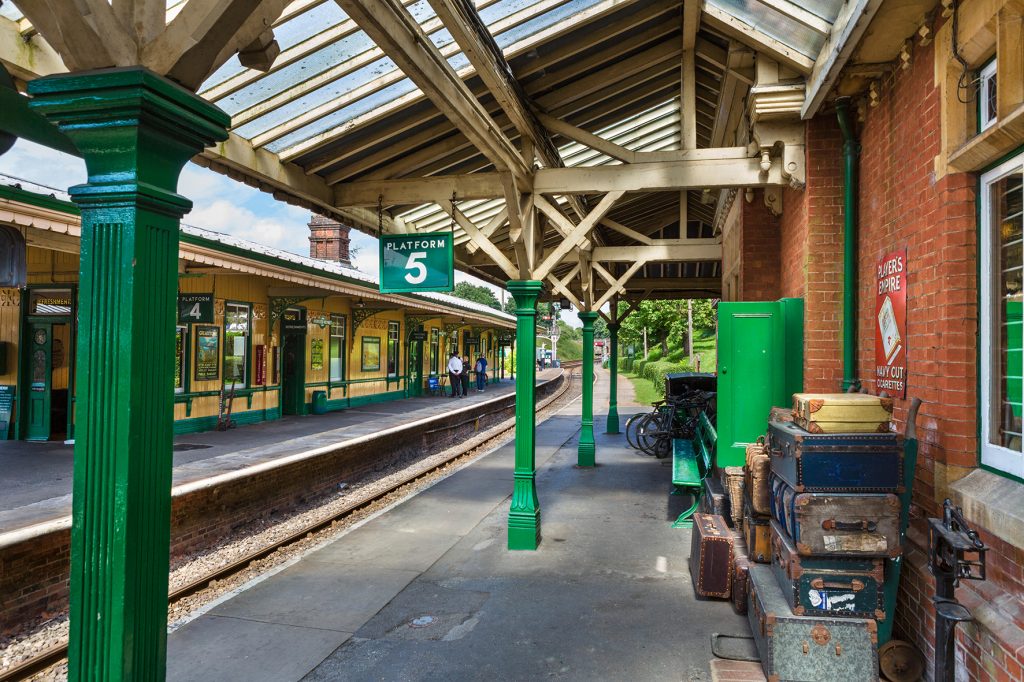
Many visitors to Horsted Keynes these days, however, are oblivious to the house’s presence or the village’s secret past. They come just to soak up its picture-postcard charm or walk in nature by the lakes and fishing ponds. These are reached by taking the lane that runs by the thousand-year-old parish church of St. Giles, believed to be built on the site of a prehistoric Dolmen Circle.
Nearby, Wakehurst Gardens offers 500 acres of diverse landscapes, featuring botanic and walled gardens, a nature reserve, flower meadows and plants from across the globe. Wakehurst is part of Kew Gardens and is often referred to as Kew’s country cousin, even though it is actually twice the size of its London counterpart.
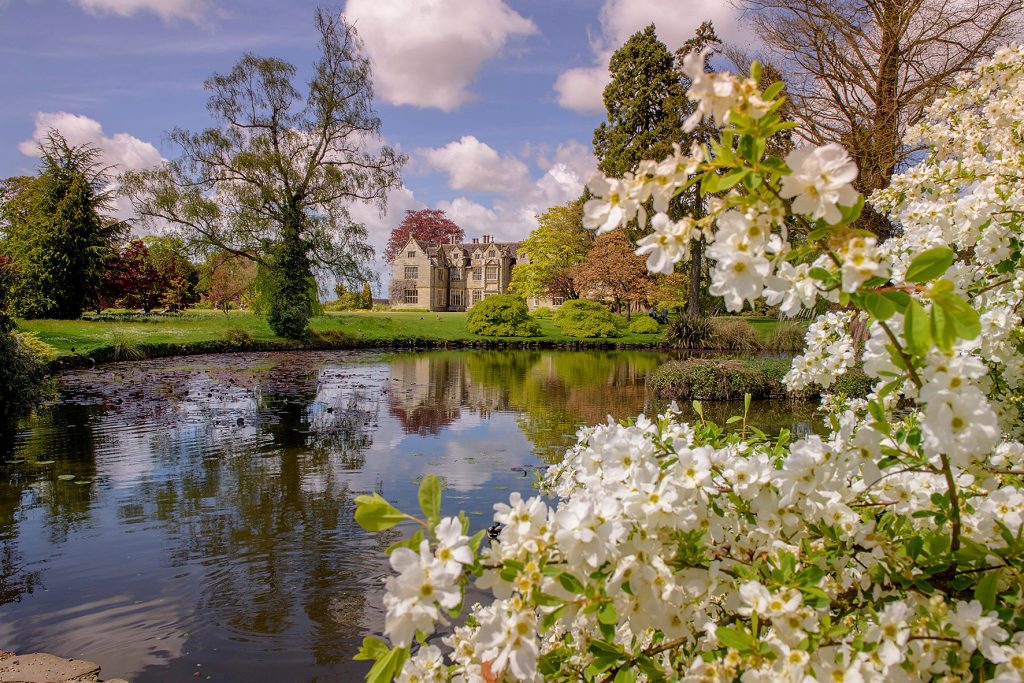
No trip to Horsted Keynes would be complete without a ride on one of the Bluebell Railway’s vintage steam engines, travelling in the charm and style of a bygone age and stopping at the iconic station where time has stood still since 1925. Platform staff dress in period costume and you can see working examples of signal boxes and other historic railway paraphernalia.
Many of the leaders and politicians who came to Harold Macmillan’s country home probably didn’t have time to enjoy Horsted Keynes’ other attractions; they were too busy trying to save the world from atomic oblivion. Their efforts prevailed, so we’ve a lot to be thankful to them for. Not least of which is the fact that present and future generations are able to enjoy the tranquil charms of this Sussex village — and its secret past — in peace.
Read the full feature in the June/July issue of Discover Britain, available to buy from Friday 3 May, here.
Read more:



